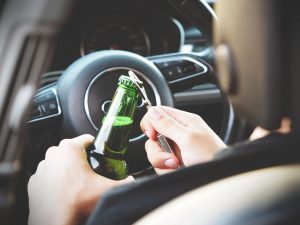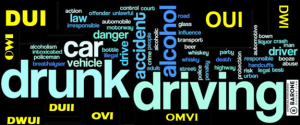Search
Will Covid-19 Face Masks Lead to More DUI Arrests in Michigan?
With new cases of Covid-19 continuing to escalate in Michigan, on July 10, 2020, Governor Whitmer responded with Executive Order 2020-147, which indicates that “[A]ny individual who leaves their home or place of residence must wear a face covering over their nose and mouth.” The Order further provides that masks must be worn in any indoor public space and on all public transportation. Also, face masks are now mandatory when you are a passenger on any ride-sharing vehicle, such as Lyft or Uber, or in any private car when being used as “hired transportation.” Will this mandatory Covid-19 face mask requirement have any impact on law enforcement practices? Specifically, will a lack of a face mask by driver or a vehicle’s occupants lead to probable cause to stop a motor vehicle?
To answer this interesting legal question, we begin by noting that the Executive Order does make a failure to comply a crime. Specifically, the order provides that a failure to wear a required face mask is a misdemeanor, though no jail time may be imposed for its willful violation. An open question in all this is how and even whether the police in the State of Michigan will enforce this Order?
As it relates to the existing law governing when the police may stop a moving vehicle, the general rule is that they must have “probable cause.” However, there are many circumstances when the police may lawfully stop you, including and perhaps most commonly, for a violation the traffic code such as speeding. In 2014, the United States Supreme Court, in the Navarette case indicated that a vehicle may be stopped based on an anonymous 911 call provided the caller provides enough information and detail to have the indica of reliability and therefore enough to give rise to a reasonable suspicion that criminal activity was afoot.
 Michigan Criminal Defense Lawyer Blog
Michigan Criminal Defense Lawyer Blog


 A person in Michigan is guilty of a misdemeanor if they transport or possess alcoholic liquor in a container that is open or uncapped or upon which the seal is broken within the passenger area of a motor vehicles. However, the law passed by Whitmer during Covid may call this into question, and might provide a defense to your case.
A person in Michigan is guilty of a misdemeanor if they transport or possess alcoholic liquor in a container that is open or uncapped or upon which the seal is broken within the passenger area of a motor vehicles. However, the law passed by Whitmer during Covid may call this into question, and might provide a defense to your case. For most drivers the
For most drivers the  If you’ve been arrested for operating a vehicle while intoxicated,
If you’ve been arrested for operating a vehicle while intoxicated,